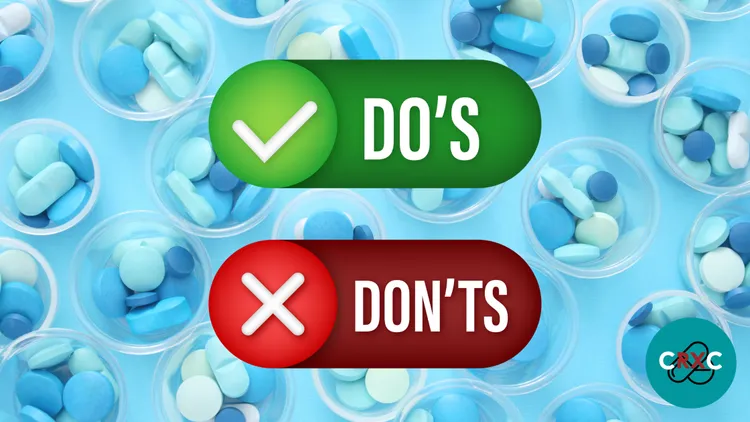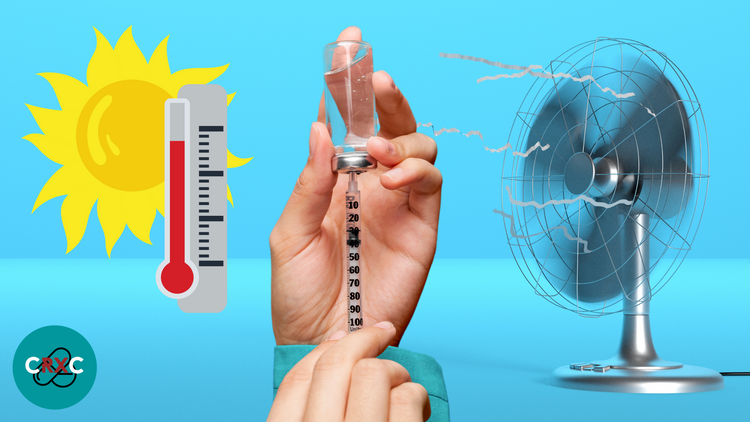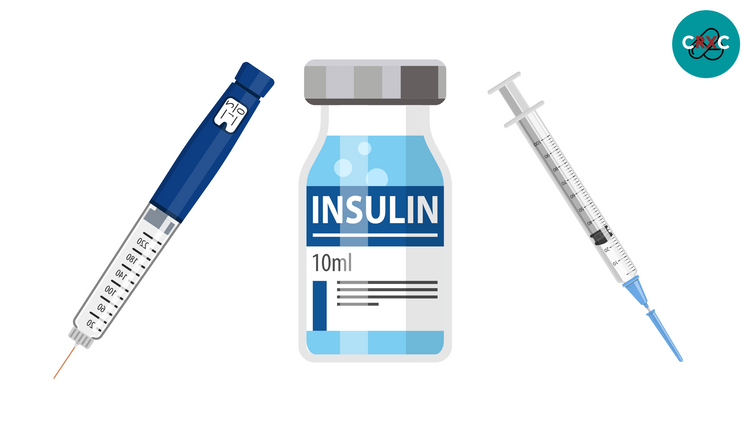Hot weather tips and ways to prevent extreme heat-related deaths and illnesses
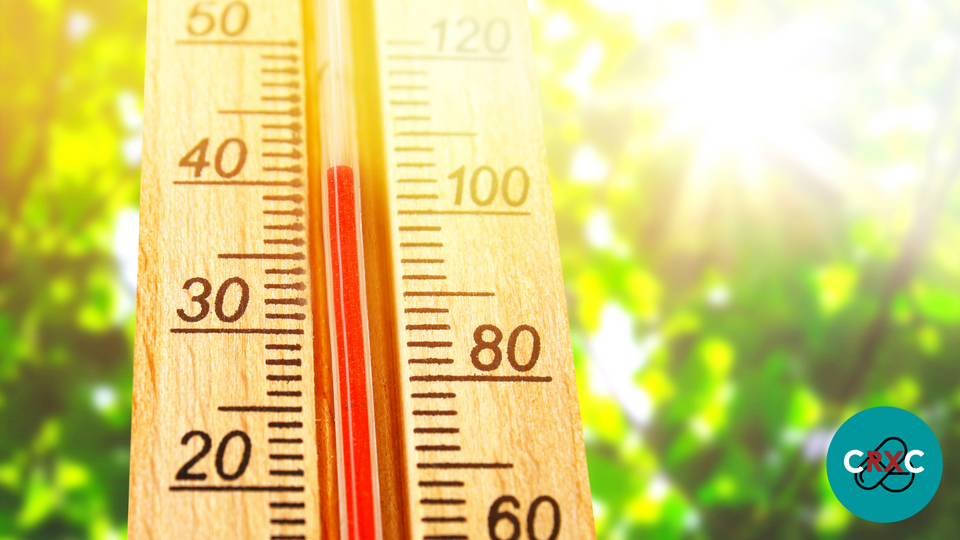
Many areas in United States have a high number of extreme heat events and occurrences, which we often call "heat waves." Many people may not be aware that extreme heat can put ones health at risk. Extreme heat can cause many illnesses like heat stroke and at times death. It is very important to educate yourself on preparation and ways to prevent these illnesses and deaths to protect yourself and your family.
In the event of extreme heat, temperatures involved are typically, unusually high. When the body is not able to regulate it's body temperature, or cool itself down properly, one could suffer from heat-related illnesses such as heat exhaustion and heat stroke. In extreme cases this can cause damage to your vital organs and the brain.
As per the CDC, Some factors that might increase your risk of developing a heat-related illness include:
- Obesity
- Fever
- Dehydration
- Prescription drug use
- Heart disease
- Mental illness
- Poor circulation
- Sunburn
- Alcohol use
Symptoms
Be aware and look out for heat related illness symptoms such as:
- dizziness or fainting
- nausea or vomiting
- dry mouth
- headache
- rapid breathing and heartbeat
- extreme thirst
- decreased urination or unusually dark yellow urine
- changes of behavior in children (extreme fatigue or temper tantrums)
- rashes on the skin
- swelling in hands or feet
- muscle cramping
Tips
Here are a few tips on ways you can reduce the risks of heat-related illnesses.
- Stay cool (wearing loose fitting, light weight clothing, having access to air conditioned facilities even just for a few hours at a time)
- Cool down instantly with cold showers, or baths
- Wear sunscreen
- Do not leave kids in vehicle
- Stay hydrated (water and especially drinks with electrolytes help to replace the salts and minerals you lose while sweating)
- Avoid drinking too much alcohol in high temperature areas
- Stay informed with heat-wave warning reports from your local news or radio
In the case of emergencies
Here are some pointers on what to do in case you are faced with these heat-related illnesses:
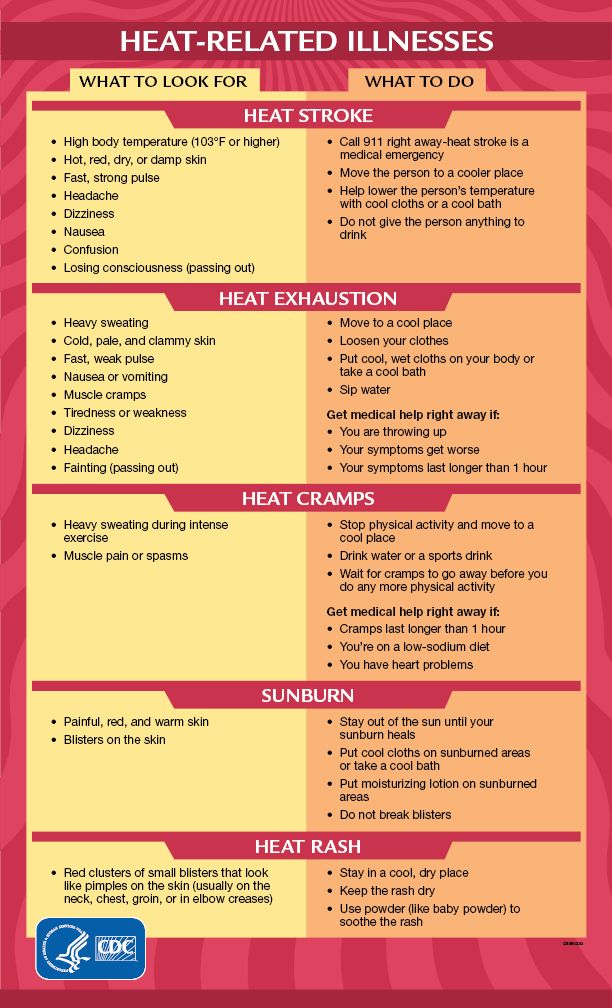
Photo image courtesy of: https://www.cdc.gov/disasters/extremeheat/warning.html

